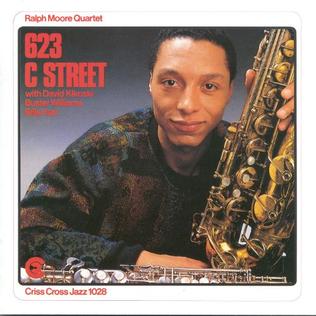Jazz is a music genre that originated in the African-American communities of New Orleans, Louisiana, in the late 19th and early 20th centuries, with its roots in blues, ragtime, European harmony and African rhythmic rituals. Since the 1920s Jazz Age, it has been recognized as a major form of musical expression in traditional and popular music. Jazz is characterized by swing and blue notes, complex chords, call and response vocals, polyrhythms and improvisation.

John Birks "Dizzy" Gillespie was an American jazz trumpeter, bandleader, composer, educator and singer. He was a trumpet virtuoso and improviser, building on the virtuosic style of Roy Eldridge but adding layers of harmonic and rhythmic complexity previously unheard in jazz. His combination of musicianship, showmanship, and wit made him a leading popularizer of the new music called bebop. His beret and horn-rimmed spectacles, scat singing, bent horn, pouched cheeks, and light-hearted personality have made him an enduring icon.
Modal jazz is jazz that makes use of musical modes, often modulating among them to accompany the chords instead of relying on one tonal center used across the piece.

Earl Rudolph "Bud" Powell was an American jazz pianist and composer. A pioneer in the development of bebop and its associated contributions to jazz theory, Powell's application of complex phrasing to the piano influenced both his contemporaries and later pianists including Walter Davis, Jr., Toshiko Akiyoshi, and Barry Harris.

Dillon "Curley" Russell was an American jazz musician, who played bass on many bebop recordings.
Confirmation is a bebop standard composed by saxophonist Charlie Parker in 1945. It is known as a challenging number due to its long, complex head and rapid chord changes, which feature an extended cycle of fifths. Jazz educator Dariusz Terefenko has pointed out the speed and intricacy of "Confirmation's" "harmonic rhythm", which he notes is typical of the bebop era.

Remembering Bud: Cleopatra's Dream is a jazz trio album recorded by pianist Toshiko Akiyoshi in 1990 as a tribute to jazz pianist Bud Powell and released on the Nippon Crown record label in Japan and on the Evidence label in the USA.

The Amazing Bud Powell is a ten-inch LP by American jazz pianist Bud Powell, recorded on August 8, 1949, and May 1, 1951, and released on Blue Note in April 1952. In the first session, Powell performed in quintet with Fats Navarro, Sonny Rollins, Tommy Potter and Roy Haynes, and in trio with Potter and Haynes. In the second, Powell performed in trio with Curley Russell and Max Roach, and solo.

The Genius of Bud Powell, originally titled Bud Powell's Moods, is a studio album by jazz pianist Bud Powell, released in 1956 by Mercury / Clef, featuring two sessions that Powell recorded in 1950 and 1951.

Un Poco Loco is an album by American jazz vibraphonist Bobby Hutcherson, recorded in 1979 and released on the Columbia label. The album was Hutcherson's last for Columbia.
"Glass Enclosure" is a composition by jazz pianist Bud Powell. The first recording was Powell's version for Blue Note Records in 1953, which was released as part of the album The Amazing Bud Powell, Vol. 2 the following year. It was also released as one side of a single, with "I Want to Be Happy".

Shades of Bud Powell is the third solo album by trumpeter Herb Robertson. Featuring compositions by pianist Bud Powell arranged for a brass ensemble, the album was recorded in 1988 and released on the JMT label.

Afro-Cuban Influence is an album by American jazz trumpeter and arranger Shorty Rogers which was released by RCA Victor in 1958.

New York-Barcelona Crossing, Volumen 2 is an album by jazz pianist Brad Mehldau, with Perico Sambeat, Mario Rossy (bass) and Jorge Rossy (drums).

You Can't Go Home Again is an album by trumpeter Chet Baker, recorded in 1977 and released on the Horizon label. In 2000, the album was rereleased as a double CD with additional tracks from The Best Thing for You (1989) along with previously unreleased tracks and alternate takes.

Jim McNeely at Maybeck: Maybeck Recital Hall Series Volume Twenty is an album of solo performances by jazz pianist Jim McNeely.

623 C Street is the second album led by saxophonist Ralph Moore which was recorded in 1987 and released on the Dutch Criss Cross Jazz label.

Take This is a studio album by French jazz pianist and composer Jacky Terrasson. The album was recorded in Pompignan, France in September 2014 and released on February 24, 2015 by Impulse!. The album title derives from Paul Desmond's song "Take Five". The record contains 11 tracks: four Terrasson's originals are laced through a typically eclectic mix of covers.
"Una Noche con Francis", originally titled "Un Noche con Francis", is a calypso jazz composition written by Bud Powell in 1964 and dedicated to jazz fan and amateur musician Francis Paudras.

The Amazing Bud Powell, Vols. 1 & 2 are a pair of separate but related albums by American jazz pianist Bud Powell, recorded on August 8, 1949, May 1, 1951, and August 14, 1953, and released on Blue Note in 1956, compiling Powell's first three session for the label, originally released on ten-inch LPs as The Amazing Bud Powell (1952) and The Amazing Bud Powell, Vol. 2 (1954).















